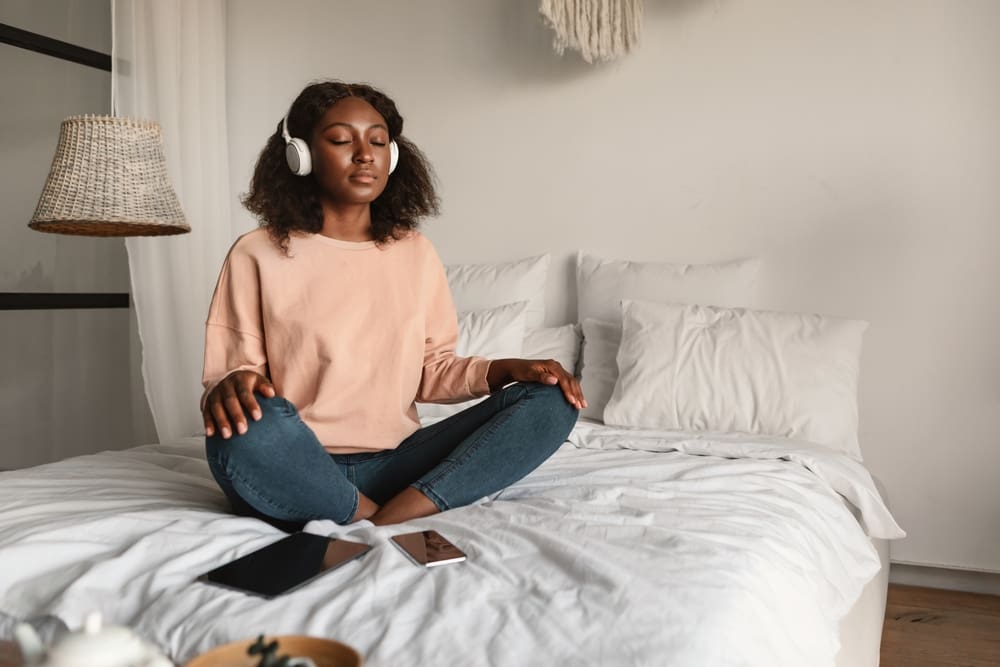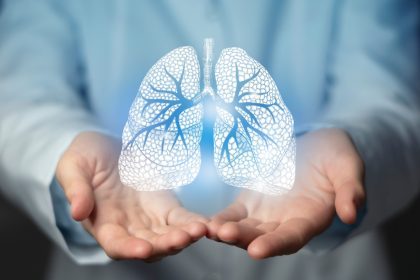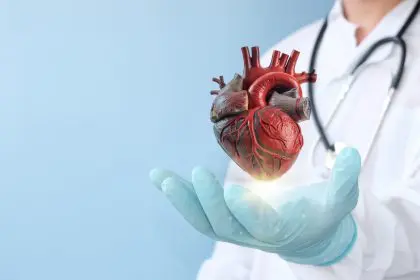Recent medical studies reveal a direct link between regular meditation practice and improved cardiovascular health. Your heart responds to moments of calm by slowing down, allowing blood vessels to relax and pressure to decrease naturally. This biological response explains why more doctors now recommend meditation alongside traditional treatments for high blood pressure.
Proven tips to natural blood pressure control
Creating your meditation sanctuary
The environment you choose for meditation directly impacts its effectiveness on your blood pressure. Medical research shows that finding a quiet, comfortable space triggers your body’s relaxation response within minutes. This response naturally lowers blood pressure by reducing stress hormones in your bloodstream.
Your dedicated space needn’t be large – a corner of your bedroom or a peaceful spot in your garden works perfectly. The key lies in consistency and comfort. Keep the temperature moderate and the lighting soft to help your body ease into a state of calm.
The power position for pressure reduction
Your body position during meditation plays a crucial role in blood pressure management. Research indicates that proper posture allows for optimal blood flow and deeper breathing, essential elements for maintaining healthy blood pressure levels.
Finding your ideal position might take some experimentation. While traditional cross-legged poses work for some, others find better results sitting in a supportive chair with feet flat on the floor. The goal is to maintain a straight spine without creating tension in your body.
Mastering the breath connection
The way you breathe directly influences your blood pressure readings. Medical researchers at major heart centers have documented how deep, mindful breathing triggers a cascade of calming effects throughout your body. Each controlled breath activates your parasympathetic nervous system, naturally lowering both heart rate and blood pressure.
Start with gentle inhales through your nose, allowing your lungs to fill completely. Medical studies show that this simple technique increases oxygen flow to your heart while reducing stress hormones in your bloodstream. Practice breathing in for four counts, holding briefly, then releasing for six counts.
The power of guided support
For those new to meditation, guided sessions provide a structured path to blood pressure management. Research from leading medical institutions reveals that people following guided meditations show more consistent drops in blood pressure compared to those practicing alone.
Modern technology offers countless options for guided support, from specialized apps to online sessions led by experienced practitioners. These guides help maintain focus while ensuring you’re practicing techniques proven to benefit heart health.
Understanding visualization’s impact
Your mind possesses remarkable power over your physical well-being. When you visualize peaceful scenes, your body responds by lowering stress hormones and reducing blood pressure. Medical imaging studies show active changes in brain patterns during visualization exercises, corresponding with decreased cardiovascular stress.
Picture yourself in a serene setting – perhaps beside calm waters or in a quiet forest. These mental images trigger real physiological responses, helping your blood vessels relax and your heart rate stabilize.
The mindfulness connection
Staying present through mindfulness creates a direct path to lower blood pressure readings. This technique helps break the cycle of stress and anxiety that often contributes to hypertension. Recent studies demonstrate how mindfulness practitioners show significant improvements in blood pressure control compared to those who don’t practice.
Focus on physical sensations: the weight of your body, the texture of your clothing, the temperature of the air. This awareness anchors you in the present moment, reducing stress-induced blood pressure spikes.
Building your practice foundation
Consistency matters more than duration when it comes to meditation’s effects on blood pressure. Medical data shows that regular, brief sessions provide better results than occasional longer ones. Even five minutes daily can initiate positive changes in your cardiovascular system.
Choose a specific time each day for your practice. Morning sessions set a calm tone for the day, while evening meditation helps your body prepare for restorative sleep.
The ripple effect on overall health
Beyond blood pressure management, regular meditation creates widespread health benefits. Research indicates improvements in sleep quality and duration; digestive system function; immune system response; mental clarity and focus; and emotional resilience.
Making meditation work in real life
Modern life presents unique challenges to establishing a meditation practice. Address common obstacles by starting with short sessions, using lunch breaks for quick resets, creating a portable meditation space, setting gentle reminders on your phone and finding accountability partners
The path forward
Your journey toward better blood pressure control through meditation remains uniquely personal. Listen to your body’s signals and adjust your practice accordingly. Remember that each session, regardless of length or style, contributes to your overall cardiovascular health.
Medical professionals increasingly recognize meditation as a valuable tool in blood pressure management. Combined with traditional medical care and lifestyle changes, these techniques offer a natural path to better heart health.
Stay committed to your practice, knowing that each mindful moment brings you closer to improved blood pressure control and enhanced overall well-being. Your heart responds to these peaceful practices in ways that benefit not just your blood pressure, but your entire life.
















